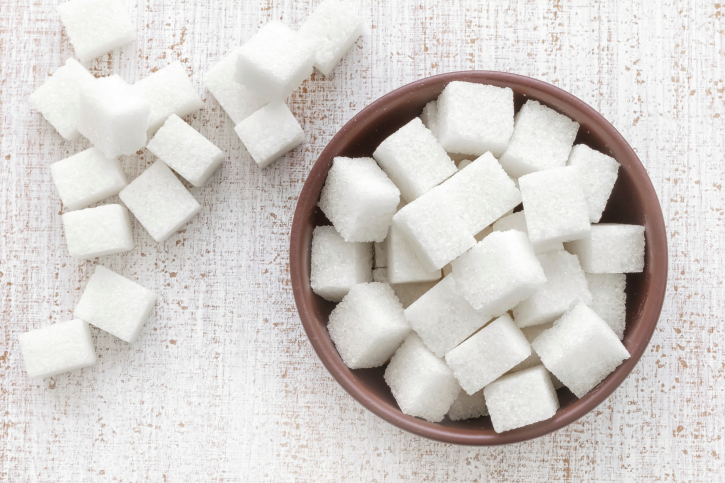BRAIN FOOD TIP OF THE DAY
Has your relationship with sugar become a little sticky?

‘Identifying the everyday excuses we use to consume sugar is first step to controlling our habit,’ says Brain Food psychologist Elaine Slater
Here are her top tips on how to curb your cravings and shun the sweet stuff for good.
1. You’re addicted to sugar
Sugar has similar addictive properties to cocaine, nicotine and heroin. If you are hijacked by the blood sugar roller-coaster you are much more likely to reach for food items that will rapidly elevate your mood and give you an instant energy boost. Counteract cravings with a quiet meditation, deep breathing will stimulate the release of endorphins.
2. You think sugar is harmless
You sweeten your drink at every opportunity or reach for the biscuit tin at 3pm but it’s a defective strategy as you’re only riding the sugar rollercoaster that will lead to a huge energy crash. Worryingly these office sugar ‘fixes’ have the potential to cause a career crisis as they have been linked to memory loss and diminished concentration levels. Healthy fats are a far more effective fuel power for your brain so adding them to your daily diet will help balance your blood sugar levels and reduce sugar cravings throughout the day.
3. You hate the F Word
It’s one of the biggest food marketing errors to ever be made. Saturated fats have taken all the blame while sugar has got off scot-free. Don’t believe the hype. People who eat the most sugar have higher blood triglycerides and lower good cholesterol. Reach for walnuts, ditch the doughnuts.
4. It’s an exercise essential
Many of us reach for energy drinks during a workout yet drinking these teaches your body to demand sugar. The orbitofrontal cortex is an area in the front of the brain where we process rewards and this is activated every time we consume sugar. Offset your cravings by getting into the habit of only consuming water when you work out.
5. You eat for comfort
Emotional eating uses food as the default coping mechanism to withstand negative feelings such as anger, unhappiness, depression and stress. Yet research has shown that reaching for sugary foods can lead in an increase in anxiety levels which can make you feel worse after an initial ‘high’ period. Sugar can cause blurry vision, tiredness and breathing difficulties all of which may be confused as signs of a panic attack, which will only increase distress and anxiety.
Keep checking the website for exercise and nutrition news, tips, and reviews









